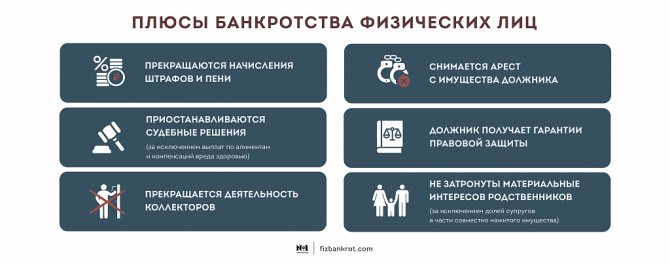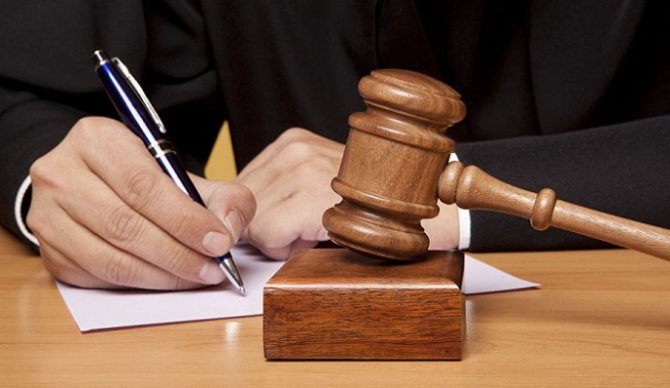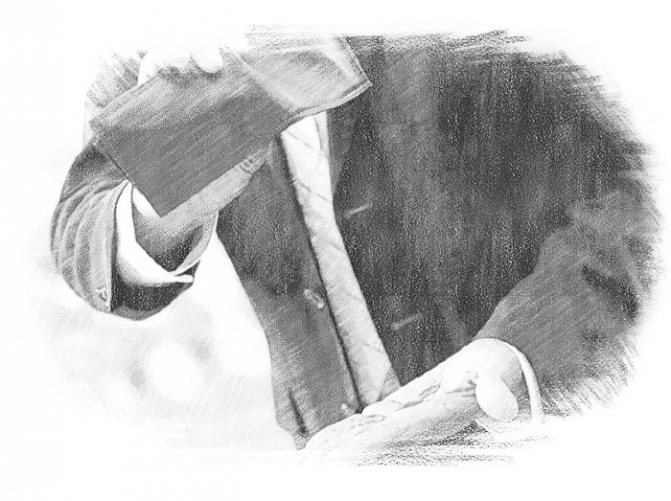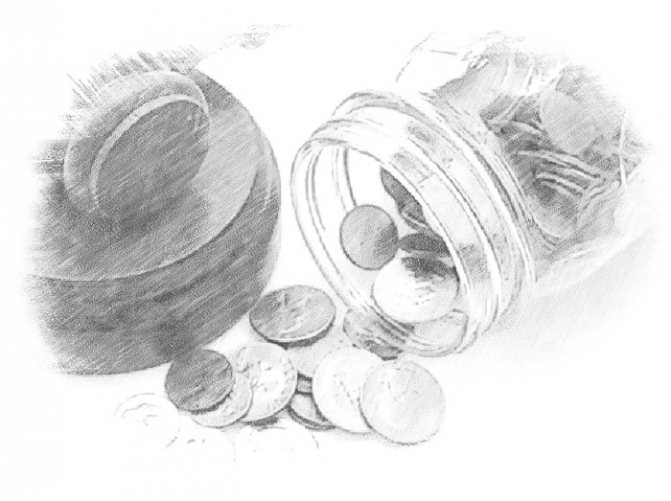- Advantages of personal bankruptcy
- Disadvantages of personal bankruptcy
- The role of legal assistance in bankruptcy proceedings
On October 1, 2020, the law on financial insolvency (bankruptcy) of individuals came into force. This is a civilized way of resolving a conflict between a citizen and creditors. To assess the pros and cons of bankruptcy of individuals, it is necessary to obtain an objective understanding of the essence of the law and the mechanism of its operation.
IMPORTANT! The main purpose of the procedure is to find solutions to satisfy creditors' claims.
There are only three options for resolving disputes - debt restructuring, return of money after the sale of property, or concluding a settlement agreement. Thus, insolvency does not mean unconditional write-off of debts, and this is the main thing why bankruptcy is bad for individuals.
All possibilities for debt repayment will be considered during legal proceedings. Nevertheless, there are many positive aspects in declaring a citizen bankrupt.
Let us first consider the advantages of bankruptcy of individuals and then compare them with the disadvantages. Only in this way can one determine how appropriate it is to go to court.
Advantages of personal bankruptcy
The main advantage of bankruptcy of individuals. persons - settlement of financial claims, complete removal of the debt burden. If competent lawyers are involved in the case, defending the interests of the debtor, they find the most favorable conditions for settling claims.
This may be debt repayment on soft terms - for example, payment of the amount in installments, without penalties or fines over several years. Restructuring is possible in cases where the debtor has income (at least 25 thousand rubles per month) or liquid property through the sale of which the debt can be repaid.
In the event that the amount of financial claims exceeds the value of the property owned by a citizen, while he has no income, all amounts of debt are canceled. Simply put, the debt is written off completely if there is no source of funds. The advantages of bankruptcy of a citizen in this situation, in addition to writing off the loan itself, are as follows:
- the accrual of fines and penalties stops;
- court decisions are suspended (with the exception of alimony payments and compensation for harm to health);
- the activities of collectors cease;
- the seizure of property is lifted;
- the debtor receives guarantees of legal protection;
- the procedure does not affect the material interests of relatives (with the exception of the shares of spouses in jointly acquired property).

Freed from the debt burden, a person can start life with a clean face, without debts and claims - and this is the main advantage of bankruptcy for individuals.
IMPORTANT! A citizen’s only home, as well as household items, as well as personal items, is not included in the list of property being sold (Article 446 of the Civil Code of the Russian Federation). The fact that the owner is not deprived of the real estate where he personally and his family live is an undoubted advantage of the bankruptcy procedure physical persons
Features of declaring insolvency for individuals
A citizen may declare himself bankrupt if:
- the total amount of his debt has crossed the threshold of 500 thousand rubles;
- he is unable to repay creditors' claims for more than 3 months;
- the total value of his property is less than the amount of his debt.
The following may apply for recognition of bankruptcy:
- the borrower himself;
- his creditors;
- authorized bodies represented by the Federal Tax Service and other services.
The borrower is obliged to file an application with the court if he has debts to several creditors and paying off obligations to one of them will lead to the fact that the citizen will not be able to pay off the others. In all other cases, an individual has the right to submit an application, but this will not be his obligation.
Creditors go to court if a citizen has a debt to them of at least 500 thousand rubles. In this case, only the net amount is taken into account, without taking into account the accrued interest and penalties.
Federal Law No. 127 of 2020 determined that an individual entrepreneur is equal to an individual. This means that the debts of the entrepreneur and the citizen are combined, and bankruptcy proceedings can be started if the total amount of liabilities is not less than 500 thousand rubles (for example, a person has accumulated 350 thousand rubles in credit as an individual entrepreneur and 150 thousand rubles as an individual).

Authorized bodies have the right to go to court if a citizen does not pay mandatory payments (taxes, utilities, etc.)
Disadvantages of personal bankruptcy
Declaring a citizen bankrupt is a compromise solution to a problem when there are no other ways to resolve it. Accordingly, the pros and cons of a debtor's bankruptcy are always considered in their entirety. Let us highlight the negative aspects of the process:
- the presence of certain conditions for filing documents for bankruptcy - a debt in the amount of at least 500 thousand rubles. and violation of obligations for current payments for three months (at least);
- all cash savings (if any) and liquid property will be seized;
- the bankruptcy procedure is associated with financial costs (payment of state fees, remuneration of the arbitration manager, appraiser);
- any financial transactions are under the supervision and control of the arbitration manager;
- a ban on leaving the country for the duration of the trial comes into force (except for cases where the business is conducted outside Russia and generates income);
- the disadvantage of bankruptcy of individuals is associated with the duration of the procedure (in the absence of the help of competent lawyers, it can last more than a year);
- transactions involving the alienation of property (sale, gift) carried out over the last three years may be considered illegal;
- a bankrupt does not have the right to engage in entrepreneurial activity for three years after a court decision.
The disadvantages of bankruptcy also include a serious degree of liability for providing false information or concealing sources of income. What is bad about bankruptcy for individuals who want to hide part of their income is the possibility of falling under administrative or criminal liability.
If a citizen “forgot” about the presence of funds (or their sources) in an amount of less than 1.5 million rubles, a fine will be imposed, and if larger amounts are concealed, criminal liability may arise. This point is important for those who view financial insolvency solely as a legal procedure for writing off all debts. Fictitious and deliberate bankruptcy are criminal offenses, and this fact should always be taken into account by persons manipulating the law.
What does the Bankruptcy Law give to ordinary people?
This is interesting
From October 1, 2020, bankruptcy is available not only to firms and large companies, but also to private individuals, as well as ordinary citizens who have fallen into a debt trap.
If business is clear, then why bankruptcy of individuals is needed is worth finding out.
Keeping the problem within the legal framework will protect a person from illegal persecution and help get rid of the debt burden. The law provides for the availability of a certain amount of available funds necessary to implement the procedure and significantly limits the rights of the citizen himself.
Let's talk in more detail about who can count on debt forgiveness and what consequences await them in accordance with the amendments made to the relevant law in 2020.

Conditions for obtaining a new status
The latest edition of the federal law “On Insolvency” puts forward the following requirements for those wishing to obtain the coveted status of financial insolvency:
- Confirmation of debts of at least 500 thousand rubles. (In total).
- Lack of payments on obligations for three months (or more).
- The justification for the inability to satisfy the creditors' claims must be proven in court.
What will they take and what will they leave?
To eliminate debts, the following are put up for auction:
- valuable jewellery;
- luxuries;
- real estate (apartment, garage, other buildings);
- cars.

Part of the property remains with the debtor. This includes:
- the only housing, in the absence of collateral encumbrances;
- household items, personal belongings (clothing, shoes);
- Food;
- part of the income not less than the living wage of a citizen;
- orders, medals, government awards, prizes and winnings.

The role of legal assistance in bankruptcy proceedings
Considering the pros and cons of personal bankruptcy. persons, one must always take into account how thoroughly the plaintiff prepared for the procedure and how well he understands the law. The process seems simple and transparent only at first glance, but in practice many complex issues arise in court cases.
Ignorance or misunderstanding of certain legal aspects can be used to advantage by creditors, and the result will be a refusal to declare a citizen bankrupt. In turn, this fact means a loss of funds allocated for legal costs, refusal to write off debts, the resumption of lawsuits and the activation of collectors.
Lawyers specializing in recognizing the financial insolvency of individuals know absolutely everything about this procedure - how to arrange debt restructuring, whether it is possible to conclude a settlement agreement in bankruptcy, or reduce the amount of payments.
The outcome of the case largely depends on the chosen strategy, the persuasiveness of the documents presented, and the ability to put aside a point of view in the meeting room. Thus, the number of pros and cons of civil bankruptcy is also determined by the degree of participation of a professional lawyer.
Possible options for bankruptcy of a citizen
Bankruptcy of individuals was introduced into practice not to speed up the write-off of debts, but to resolve difficult relations between creditors and debtors. Therefore, there are several options for the development of events.
Restructuring
The debt restructuring plan is designed to improve the financial position of the debtor and direct its efforts towards solvency. The financial manager (FM) develops, the meeting of creditors approves, and the court approves a new payment schedule. By complying with it, the debtor has the opportunity to pay off all debts within three years. From this moment the accrual of interest, fines, and penalties stops. The work of bailiffs is suspended, writs of execution are cancelled, deductions from salaries are stopped - “financial holidays” are introduced. In these conditions, the citizen will have to pay loan obligations according to the approved schedule. But for this, the debtor must have a constant income, which will provide the basis for regular payments.
Advantages of contacting Legal Bureau No. 1
Our specialists know what is good about bankruptcy for individuals and what are its significant disadvantages; when to initiate a procedure, and when it is more appropriate to find another way to resolve the problem. We guarantee each client:
- objective consideration of the situation and assessment of prospects;
- professional, thoughtful actions at every stage;
- free consultation;
- quick search for solutions (guardian of the work of lawyers for at least 10 years);
- preparation of all documents for the court;
- fair pricing policy.
What does it mean to declare bankruptcy: pros and cons for the debtor
The insolvency procedure allows you to get rid of overdue obligations and get rid of unsustainable debts, but at the same time, it requires certain sacrifices from the debtor.
Positive consequences of bankruptcy:
- Possibility of writing off many categories of debt: housing and communal services, taxes, loans, microloans, promissory notes, and so on.
- Stopping the claims of creditors and collectors from the first court hearing.
- The ability to go through bankruptcy even in the absence of property and income.
- Legislative protection of the debtor's minimum subsistence level: during the procedure, a person receives a minimum wage from income for his maintenance (and for children, if any).
- Protection of social benefits, pensions and other types of state security.
- Property protection: during bankruptcy, no one will take away your only home, personal belongings, household items and other objects.
- Minimum level of participation in the procedure: all actions are carried out by the financial manager.
Negative consequences of bankruptcy:
- The impossibility of writing off certain categories of debt obligations: compensation for personal crimes, unpaid benefits and salaries of employees, alimony and other types of debts.
- Possibility of bringing to administrative, criminal liability, risks of non-writing off loans.
- The need to transfer bank cards and salary cards to the financial manager, lack of access to finance with the exception of the minimum wage.
- Sale of collateral, even if this is the only housing for the debtor - for example, with mortgages.
Previously, debtors complained about the high cost of bankruptcy procedures, but legislators introduced free bankruptcy.
Legislators approved the extrajudicial bankruptcy procedure—as of September 1, 2020, every citizen can file for bankruptcy of an individual outside of court.
However, extrajudicial bankruptcy is suitable only for certain categories of citizens:
- debt 50,000-500,000 rubles;
- the presence of closed enforcement proceedings under Part 4, Clause 1, Art. 46 No. 229-FZ;
- no criminal record;
- lack of property.
Declared bankrupt. What's next?
Above we looked at the current consequences of bankruptcy, but what will happen after the procedure? The law establishes the following:
- If restrictions on travel abroad or interim measures in relation to property were introduced during the trial, then after completion of the procedure they are removed.
- Within 5 years, when applying to creditors for loans, the bankrupt is obliged to inform them of the procedure completed.
- A bankrupt cannot go through the procedure again: after judicial bankruptcy for 5 years; after extrajudicial - 10 years.
- You cannot hold leadership positions in legal entities for 3 years.
- For 5 years, you cannot open an individual entrepreneur status if a person goes bankrupt as an entrepreneur. If the individual entrepreneur was closed before submitting the application to the AC, then this consequence does not apply.
The advantages of bankruptcy are minimal consequences. The procedure for writing off debts does not affect the debtor’s work, his social status and other opportunities. If you need detailed advice about the consequences of the procedure, seek the help of lawyers.
Legal consequences of the procedure: which debts will not be written off?
In judicial and extrajudicial bankruptcy, you cannot get rid of the following types of debts:
- Alimony for the maintenance of children and other relatives.
- Compensation related to damage to the health and life of third parties by the debtor, as well as if damage to property was caused with malicious intent.
- Compensation and salaries for former employees of an individual entrepreneur who became bankrupt.
- Compensation for moral damage caused.
- Debts under subsidiary liability.
In judicial bankruptcy, debts arising as a result of harm to the property interests of creditors are not written off. For example, debts arising as a result of transactions being declared invalid. If such transactions are recognized as causing harm with malicious intent, the consequences will remain even after the bankruptcy of the individual is declared. faces.
In an out-of-court bankruptcy procedure, debts that were not indicated in the application when applying to the MFC are not written off. For example, the debtor had 3 loans, but he indicated only two of them when submitting documents. The “forgotten” loan agreement will remain valid and payment obligations will remain in effect.
But there is an important nuance here: lenders may regard “forgetfulness” as malicious intent. Why is bankruptcy bad in such scenarios? Events will develop as follows:
- The MFC accepts the application and forwards it to the EFRSB.
- The debtor is entered into the bankrupt register through an out-of-court procedure.
- Creditors initiate judicial review of the case, apply to the Arbitration Court and appoint a controlled financial manager.
- Extrajudicial bankruptcy is terminated and the judicial procedure begins. Creditors or the financial manager request consideration of the fact of bad faith of the debtor on the basis of the absence of the creditor in the application.
- If the Arbitration Court sides with them, bankruptcy can be recognized without writing off debts.








